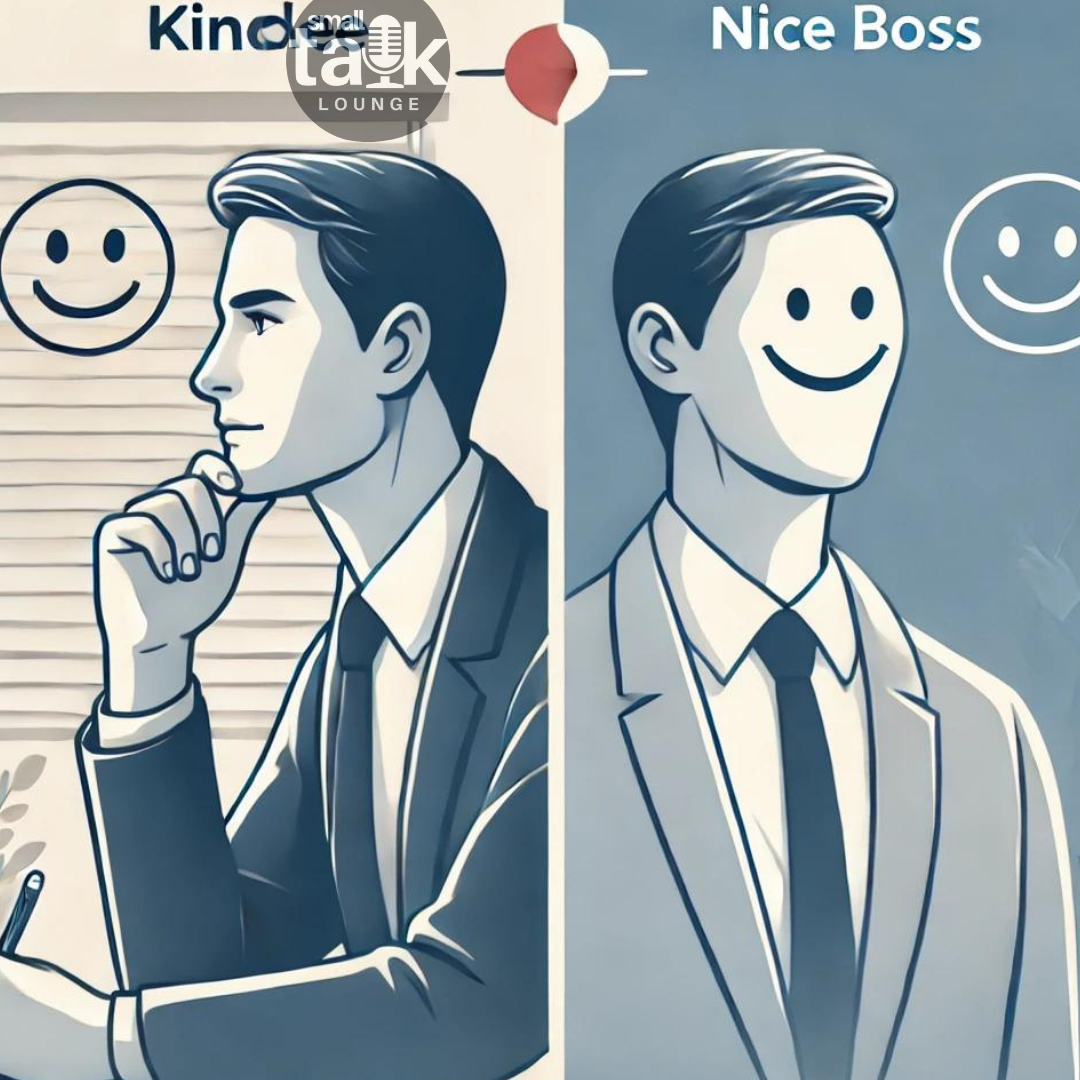In leadership, it’s easy to assume that being nice is a good thing. After all, everyone likes a boss who says “yes” to every request and avoids conflict. But there’s a subtle yet important distinction between being nice and being kind, and understanding this difference can transform how you lead.
The Spinach-on-Your-Teeth Moment
Imagine this: you’re in a meeting, and someone has spinach stuck in their teeth. A nice person might say nothing, avoiding the awkwardness to keep things pleasant. A kind person, however, would quietly let them know—because even though it’s uncomfortable in the moment, it’s in the other person’s best interest to fix it.
This simple example highlights the difference between niceness and kindness. While niceness is about avoiding discomfort and keeping things superficially smooth, kindness is about caring enough to do what’s right, even if it’s challenging. And this difference is critical in leadership.
Why Being “Nice” Can Be a Problem
I remember our highest boss once described my boss, as “a nice guy.” He might meant it in a good way—someone easy to work with, who approved every request without pushback. But here’s the thing: consistently being the nice guy, the one who avoids saying no or asking tough questions, can lead to problems.
Leaders who focus too much on being nice may:
- Approve every request, without critically evaluating the impact on the organization.
- Avoid difficult conversations that could improve team performance.
- Let issues slide in the name of keeping the peace, which can lead to bigger problems down the line.
A leader who focuses on niceness over kindness can eventually face inefficiencies, overextended budgets, or teams that don’t grow or perform to their potential because tough feedback or decisions were avoided.
Kindness as a Leadership Superpower
A kind leader, on the other hand, is driven by a genuine concern for their team’s growth and the company’s well-being. Kindness isn’t about being agreeable at all costs—it’s about making decisions that support long-term success, even if they are tough in the short term.
Here’s how you can embrace kindness as a leader:
1. Provide Honest Feedback
It’s not always easy, but giving constructive feedback is one of the most powerful ways you can support your team’s growth. Be the leader who points out the spinach on someone’s teeth—not to embarrass them, but to help them improve. Honest feedback fosters development.
2. Evaluate Requests Critically
Don’t automatically approve everything. Ask critical questions and ensure that the requests align with your company’s goals and resources. It’s okay to say “no” or “not right now” if the request doesn’t serve the organization’s priorities. This isn’t about being difficult; it’s about being responsible.
3. Set Boundaries and Prioritize
Kindness means helping your team and company succeed in the long run. Set clear boundaries to avoid overcommitment and burnout. Encourage departments to prioritize their most important needs, and make decisions based on what will create the most value for the organization.
4. Explain Your Decisions
When you say “no” or adjust a request, explain why. This transparency shows that you’re not rejecting ideas arbitrarily or to avoid conflict, but rather that you’re making thoughtful decisions for the good of the company and the team.
5. Balance Empathy with Responsibility
Understand your team’s needs, but remember that your role is to lead with the company’s bigger picture in mind. Sometimes, that means making tough decisions, but in the end, those decisions create a stronger and more focused organization.
Shifting From Nice Boss to Kind Leader
By focusing on kindness, you’ll build a team that trusts you not just to say “yes” all the time, but to make the decisions that truly support their growth and the organization’s success. You’ll foster a culture of accountability, respect, and transparency—where people know they can count on you for support, but also for the honest feedback and tough decisions that drive real progress.
In short, being a kind leader means caring enough to challenge, guide, and grow your team and your company, even when it’s uncomfortable. So, next time you’re faced with a decision, ask yourself: Am I being nice, or am I being kind?

